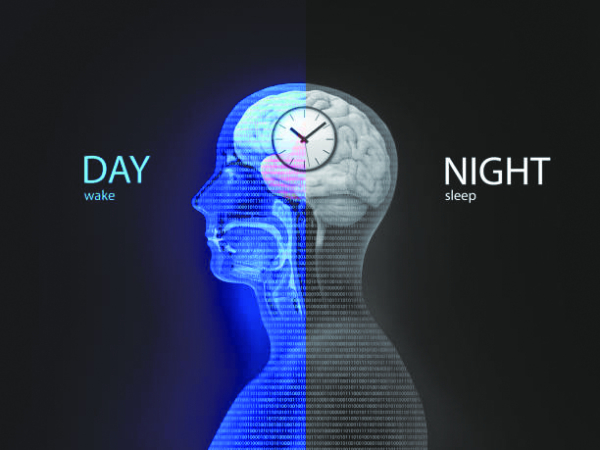
Have you ever studied late at night during exam periods, gone to bed around dawn, and then woke up in the late afternoon? Many people follow this kind of sleep pattern not only during exam periods but also during vacations. They go to bed late and wake up late, especially when they do not have to wake up early the following day. However, when you try to sleep earlier than usual, it can suddenly become difficult to fall asleep, which might make you question whether you are dealing with insomnia. However, this may not be insomnia, but Delayed Sleep Phase Syndrome (DSPS).
DSPS refers to a condition where a person’s sleep and wake times are delayed by about 3-6 hours compared to the ideal schedule. People with DSPS usually find it difficult to fall asleep before 2 A.M. and to wake up before 10 A.M. They often oversleep, are late for school or work, and feel tired in the morning. It becomes hard to concentrate or be productive during the day. Ironically, they often feel fully awake in the evening.
While DSPS might seem similar to insomnia because it involves difficulty sleeping at night, it is a different condition. People with DSPS can sleep well, but only on a delayed schedule. The problem arises when their natural sleep-wake cycle does not match the demands of everyday life, such as school or work, leading to challenges in maintaining a routine.
However, DSPS is not simply a problem of misalignment between the external clock and the body’s biological clock. A study conducted by Professor Kim Nan-hee’s team at Korea University College of Medicine, which compared the health status of 1,620 adults aged 47-59, found that night owls (those with DSPS) had three times more body fat and fat in their blood compared to morning people. They had four times the risk of muscle loss and twice the risk of metabolic syndrome.
The body’s biological clock, located in the suprachiasmatic nuclei of the hypothalamus, regulates sleep-wake cycles by controlling the activity of neurons and hormones. Behaviors that disrupt the regular sleep-wake rhythm, such as excessive light exposure late at night, napping for more than 30 minutes, or sleeping in on weekends and holidays, can interfere with the body’s natural circadian rhythm and lead to DSPS.
The biological clock in humans releases different hormones at specific times of the day to induce wakefulness and sleep. When someone experiences DSPS, this circadian rhythm becomes disrupted, often leading to chronic tiredness. Common symptoms of DSPS include oversensitivity, loss of appetite, weakened immune function, decreased concentration, excessive stress, and depression.
It is important to change sleep habits to manage DSPS. Try setting an earlier wake-up time and slowly adjusting your schedule to wake up a bit earlier each day. Over time, it can help create a healthy cycle where you naturally start feeling sleepy earlier at night. Keeping a sleep diary to check your bedtime, wake-up time, and sleep quality can also be helpful to understand your sleep pattern. It is a good idea to avoid using your smartphone or TV before bed and to make your bedroom dark and quiet. Caffeine may help you stay alert during the day, but it can disturb your sleep at night, so it is recommended to reduce caffeine intake. If it is difficult to return to a regular sleep schedule, getting help from a sleep specialist can be a good option.


